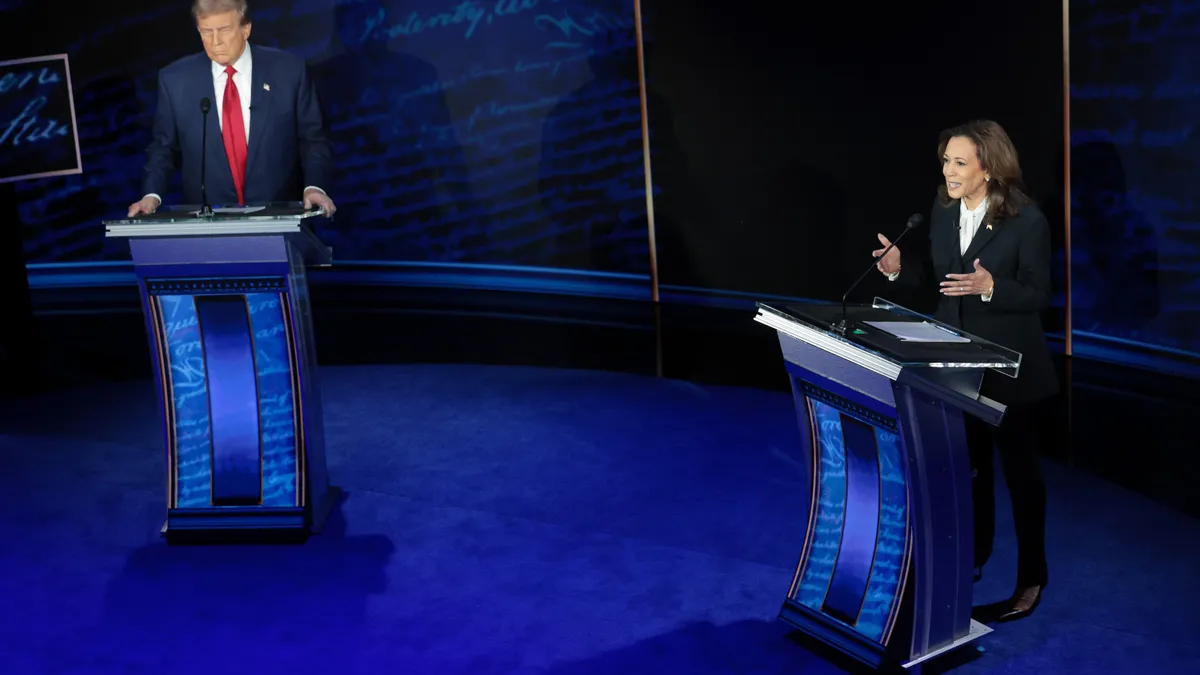Throughout the course of the 2024 U.S. presidential race, technology policy debates centered around AI. But regulatory concerns over consolidation in the massive and growing market for the infrastructure supporting AI — cloud compute services — remain unresolved.
Neither candidate has taken a public stance on cloud market competition. However, a Federal Trade Commission inquiry into the issue in March 2023 remains open.
When the inquiry began, FTC Chair Lina Khan pointed to security risks posed by consolidation among providers and growing dependency on hyperscale infrastructure across several key industries, including healthcare, finance and transportation. The agency later expanded the scope of the inquiry to include AI with Khan noting that cloud is a “key input” for the technology.
The FTC had AI and its cloud dependency in its sights again in January, when the agency ordered five companies — Amazon, Anthropic, Google, Microsoft and OpenAI — to provide details of investments and partnerships pertaining to the two technologies.
“Our study will shed light on whether investments and partnerships pursued by dominant companies risk distorting innovation and undermining fair competition," Khan said in the announcement.
It will be up to the new administration to determine the trajectory of the FTC’s regulatory efforts and its impact on cloud.
“If Lina Khan still chairs the FTC, there likely will be follow-up,” Steven Ward, resident privacy and security fellow on the cybersecurity and emerging threats team at R Street Institute, said in an email.
Ward pointed to Khan's remarks at a January FTC Tech Summit as an indication of policy direction. While she focused primarily on the rapid deployment of AI, she said the agency was taking “a close look across the AI stack” to determine whether the dominant cloud providers were positioned to block competition.
AWS, Microsoft and Google Cloud have long commanded the market, and in Q3 they controlled nearly two-thirds of the cloud infrastructure market and 68% of public cloud services, according to Synergy Research Group.
The three big hyperscalers have raced to infuse their platforms with large language model technologies and solidify alliances with key AI developers like OpenAI and Anthropic.
Cloud is where models are trained, tools are deployed and users gain access to AI solutions.
“You cannot separate them at this point,” David Linthicum, an independent cloud computing and AI subject matter expert, said in an email. “AI raises the stakes regarding the amount of control that a few companies have, and thus the interest in regulating them.”
The two presidential candidates have hinted at their diverging approaches to AI safety and oversight.
Vice President Kamala Harris, the Democratic Party nominee, would follow a strategy for assuring AI safety and security outlined in a Biden administration executive order issued last October. Former President Donald Trump, the Republican Party nominee, has signaled his intention to repeal the executive order.
There are also differences in the framing around AI versus cloud. AI is viewed largely as a safety threat. Cloud, in contrast, is seen through the lens of larger market forces and cybersecurity risks.
“The FTC has traditionally centered its cloud computing concerns around market power of cloud companies and potential security risks they pose,” Ward said.













